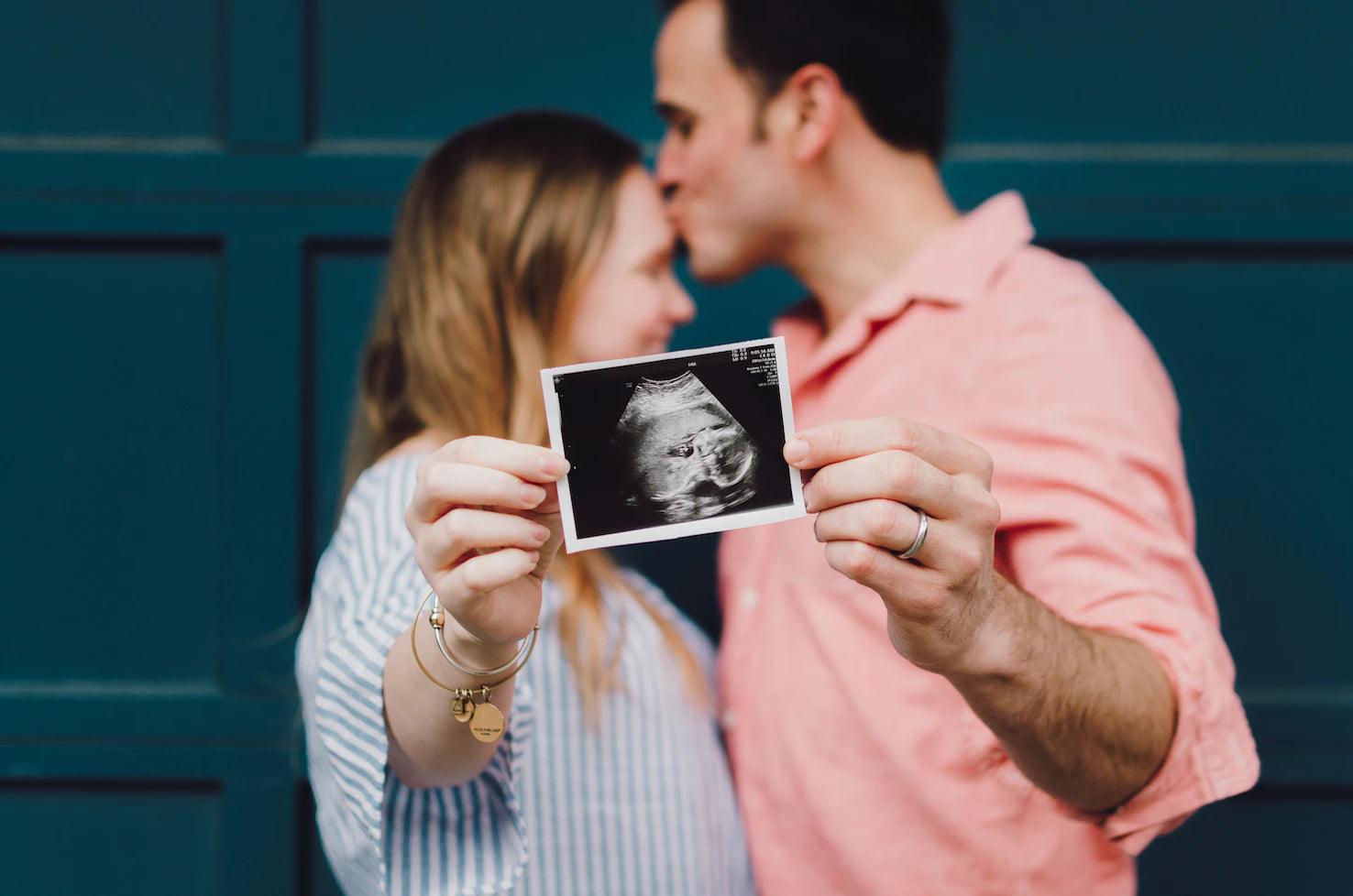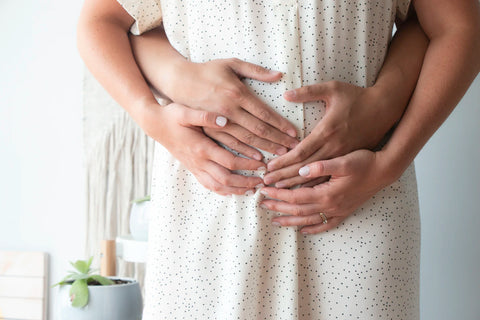Five Pregnancy Preparation Knowledge to Get Pregnant Fast
•Posted on August 16 2022

Healthy pregnancy preparation and fast pregnancy is very desirable for every couple who is preparing for pregnancy. Most people want to have a good time as a couple for a year or two after marriage and then start preparing for pregnancy. Of course, there are some couples who are hoping to get pregnant as soon as possible after marriage.
In any case, in order to achieve that healthy and fast pregnancy we have in mind, we should allow a few months for pregnancy preparation and prepare ourselves accordingly. Pregnancy requires the meeting of the sperm and the egg, and to get pregnant you need to create the opportunity for the sperm and the egg to meet. So, what exactly do you need to do?
Table of Content:
- Factors affecting pregnancy
- Preparation for Pregnancy
- 5 FAQs for Pregnant
Factors affecting pregnancy
1. Women: age (the best age is 20-34 years), ovarian function, frequency of sexual intercourse, patency of fallopian tubes, follicular maturity and ovulation, endometrial thickness.
2. Male: age (the best age is 25-34), sperm quality, sperm motility, sexual dysfunction, abnormal ejaculation.
3. Environmental factors: house decoration, medication use.
4. Mental factors: tension, anxiety, depression.
5. Lifestyle: staying up late, smoking, drinking alcohol, drug abuse.

Preparation for Pregnancy
Before preparing for pregnancy, we not only need to make adequate psychological preparation, but also need to take actions.
1. Conduct a routine physical examination: the main purpose is to find out whether there are any basic diseases in the body, such as hypertension, diabetes, kidney disease, uterine fibroids, cervical lesions and other conditions. If there are abnormalities or a history of disease, you need to see a doctor for consultation. It is also necessary to examine the family health history to find out if there are any genetic or chromosomal variant-related diseases.
2. Avoid exposure to harmful environments: for example, long-term exposure to high temperatures in men is not conducive to sperm development; women should avoid taking potentially teratogenic drugs, and if there are some underlying diseases, please follow the doctor's advice if you need to stop taking the drugs before pregnancy. Say goodbye to tobacco and alcohol, refuse drinks containing caffeine, which can affect conception or even lead to miscarriage.
3. Take multivitamins and folic acid: Folic acid is proven to reduce the occurrence of anencephaly and neural tube abnormalities, folic acid and vitamins are beneficial to both the mother and the fetus.
4. Insist on exercise: improve physical fitness and strengthen resistance.
5 FAQs for Pregnant
Q1: How long does it take to prepare for pregnancy and get pregnant?
It is very understandable to want to get pregnant quickly, but sometimes the more you think about it, the less you can conceive. It is because when people are anxious and anxious, it may affect the endocrine function or ovulation function.
In fact, only about 10% of people who have a normal sex life and are in good health can get pregnant in the first month of pregnancy preparation. In general, 80-90% of couples who are preparing for pregnancy are able to conceive successfully within one year.
Therefore, there is no need to be overly anxious during the first few months of pregnancy preparation. To help get pregnant quickly, in fact, do not be overly prescriptive and make things difficult for yourself. Take a happy mood and mental relaxation as a prerequisite. If you have not succeeded in getting pregnant for more than a year, you need to seek help from your doctor. During this period, we can think about the wonderful life after the birth of the baby and can prepare to buy children's clothes to eliminate the tension of pregnancy.
Q2: How to calculate ovulation?
The most accurate way to monitor ovulation is actually to go to the hospital for an Ultrasonic B test. However, many people still choose to judge by themselves. In the absence of ovulation test strips, we can also use some of the following physical reactions to help determine:
1. If your menstrual cycle is relatively regular, the day of ovulation is usually about 14 days before the arrival of your next period. There are many apps that can help you calculate this.
2. During ovulation, due to hormonal fluctuations, you may experience breast pain, strong desire, increased vaginal discharge, etc. Some other people may have vague abdominal pain.
Q3: Can having intercourse only during ovulation improve my chances of getting pregnant?
Having intercourse only during ovulation, which is easy to cause emotional tension for women and affects endocrine and even ovulation; for men
For men, sperm cannot be discharged regularly, which can easily reduce the quality of sperm and even cause dead sperm.
Therefore, we suggest that it is best for couples preparing for pregnancy to have a regular sex life. Younger pregnant couples can have sexual intercourse 2-3 times a week.
For those who are a little older, they can have sex once a week.
Finally, on the days when ovulation is monitored, have sexual intercourse every other day, so that most of them can catch ovulation.
Q4: What should I do if I experience "ovulatory bleeding" during ovulation
Ovulatory bleeding is caused by partial shedding of the endometrium due to insufficient luteal function and decreased progesterone levels after ovulation. What should couples who are preparing for pregnancy do?
Generally speaking, if the bleeding is not too heavy, it is not a problem to have intercourse on alternate days two or three days before and after ovulation. If the bleeding is heavy, you can consider taking estrogen on the 5th-6th day of your period or progestin during ovulation to balance the endocrine secretion and stabilize the lining, which can avoid or reduce "ovulatory bleeding".
Of course, you can also go to the hospital for examination and ask your doctor.

Q5: I am 40 years old, can I still get pregnant?
Ovarian reserve function is critical for women over 35 years old who want to prepare for pregnancy. The following are a few common indicators to determine this:
1. Age: The ovarian reserve function is relatively good in women before the age of 35.
2. Menstrual condition: regular menstruation, about once a month, lasting 3-7 days, and good menstrual volume are approximately equal to what can be considered as relatively good ovarian reserve function.
3. Clinical examination indicators: such as sex hormone examination, ultrasound sinus follicle number examination and other specific depends on the doctor's assessment.
Therefore, for older women who are preparing for pregnancy, if their periods are not very good, it is recommended that they first go to the hospital to see a doctor for evaluation. If the ovarian reserve function is really poor, they may need the help of assisted reproductive technology.
Comments
0 Comments
Leave a Comment